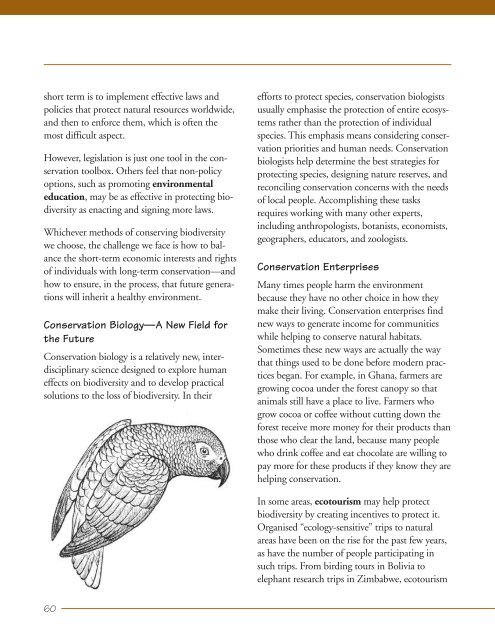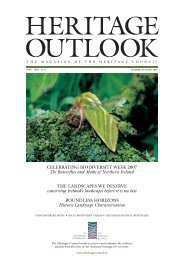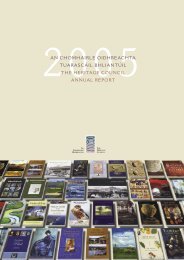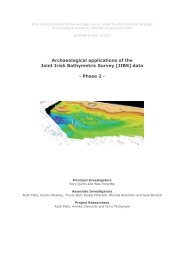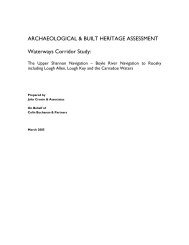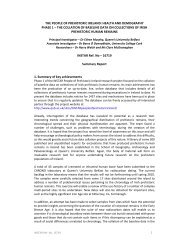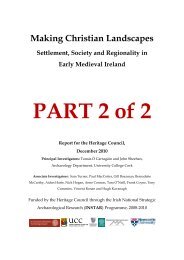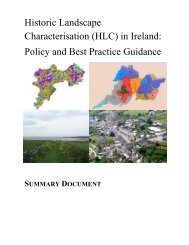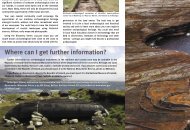EXPLORING BIODIVERSITY: A Guide for Educators Around the World
EXPLORING BIODIVERSITY: A Guide for Educators Around the World
EXPLORING BIODIVERSITY: A Guide for Educators Around the World
Create successful ePaper yourself
Turn your PDF publications into a flip-book with our unique Google optimized e-Paper software.
short term is to implement effective laws and<br />
policies that protect natural resources worldwide,<br />
and <strong>the</strong>n to en<strong>for</strong>ce <strong>the</strong>m, which is often <strong>the</strong><br />
most difficult aspect.<br />
However, legislation is just one tool in <strong>the</strong> conservation<br />
toolbox. O<strong>the</strong>rs feel that non-policy<br />
options, such as promoting environmental<br />
education, may be as effective in protecting biodiversity<br />
as enacting and signing more laws.<br />
Whichever methods of conserving biodiversity<br />
we choose, <strong>the</strong> challenge we face is how to balance<br />
<strong>the</strong> short-term economic interests and rights<br />
of individuals with long-term conservation—and<br />
how to ensure, in <strong>the</strong> process, that future generations<br />
will inherit a healthy environment.<br />
Conservation Biology—A New Field <strong>for</strong><br />
<strong>the</strong> Future<br />
Conservation biology is a relatively new, interdisciplinary<br />
science designed to explore human<br />
effects on biodiversity and to develop practical<br />
solutions to <strong>the</strong> loss of biodiversity. In <strong>the</strong>ir<br />
ef<strong>for</strong>ts to protect species, conservation biologists<br />
usually emphasise <strong>the</strong> protection of entire ecosystems<br />
ra<strong>the</strong>r than <strong>the</strong> protection of individual<br />
species. This emphasis means considering conservation<br />
priorities and human needs. Conservation<br />
biologists help determine <strong>the</strong> best strategies <strong>for</strong><br />
protecting species, designing nature reserves, and<br />
reconciling conservation concerns with <strong>the</strong> needs<br />
of local people. Accomplishing <strong>the</strong>se tasks<br />
requires working with many o<strong>the</strong>r experts,<br />
including anthropologists, botanists, economists,<br />
geographers, educators, and zoologists.<br />
Conservation Enterprises<br />
Many times people harm <strong>the</strong> environment<br />
because <strong>the</strong>y have no o<strong>the</strong>r choice in how <strong>the</strong>y<br />
make <strong>the</strong>ir living. Conservation enterprises find<br />
new ways to generate income <strong>for</strong> communities<br />
while helping to conserve natural habitats.<br />
Sometimes <strong>the</strong>se new ways are actually <strong>the</strong> way<br />
that things used to be done be<strong>for</strong>e modern practices<br />
began. For example, in Ghana, farmers are<br />
growing cocoa under <strong>the</strong> <strong>for</strong>est canopy so that<br />
animals still have a place to live. Farmers who<br />
grow cocoa or coffee without cutting down <strong>the</strong><br />
<strong>for</strong>est receive more money <strong>for</strong> <strong>the</strong>ir products than<br />
those who clear <strong>the</strong> land, because many people<br />
who drink coffee and eat chocolate are willing to<br />
pay more <strong>for</strong> <strong>the</strong>se products if <strong>the</strong>y know <strong>the</strong>y are<br />
helping conservation.<br />
In some areas, ecotourism may help protect<br />
biodiversity by creating incentives to protect it.<br />
Organised “ecology-sensitive” trips to natural<br />
areas have been on <strong>the</strong> rise <strong>for</strong> <strong>the</strong> past few years,<br />
as have <strong>the</strong> number of people participating in<br />
such trips. From birding tours in Bolivia to<br />
elephant research trips in Zimbabwe, ecotourism<br />
60


